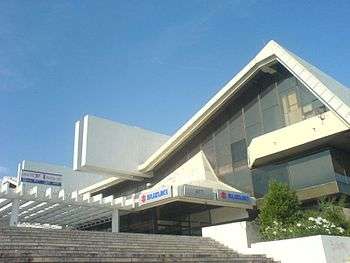KK Split
| Split CO | |||
|---|---|---|---|
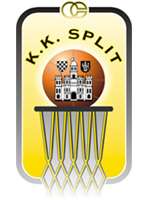 | |||
| Nickname | Žuti | ||
| Leagues |
A-1 Liga Krešimir Ćosić Cup | ||
| Founded | 1945 | ||
| History |
Jugoplastika Split (1945-1990) KK Split (1990-present) | ||
| Arena |
Arena Gripe (capacity: 3,500) | ||
| Location | Split, Croatia | ||
| Team colors |
Yellow and Black | ||
| President | Robert Andrijić | ||
| Team manager | Ante Marović | ||
| Head coach | Ivica Skelin | ||
| Championships |
1 Croatian League 5 Croatian Cups 6 Yugoslav Leagues 5 Yugoslav Cups 3 Euroleague 2 FIBA Korać Cups 3 Triple Crowns | ||
| Website |
www | ||
| Uniforms | |||
| |||
KK Split (Košarkaški Klub Split), is a basketball club from Split, Croatia. KK Split competes in the A-1 Liga and Krešimir Ćosić Cup.
History
The club's roots are found in Hajduk sports society's basketball section, which was established in 1945. After three years of mostly sporadic activity, in 1948 the club established its own organizational structure as KK Hajduk independently of sports society. Next year, 1949, the club changed its name to KK Split.
After competing in lower divisions for more than a decade, the club finally made it to Yugoslav First Federal League for the 1963/64 season and it stayed there until the breakup of SFR Yugoslavia.
In 1967 the club adopted the name KK Jugoplastika and kept it until 1990.
KK Split has been a very successful club in European basketball. They are, together with the first champions, ASK Riga the only team to win the Euroleague trophy three times in a row. In the years 1989, 1990 and 1991, the team known back then as Jugoplastika and Pop 84 with players like Dino Rađa, Toni Kukoč, Žan Tabak and Velimir Perasović won the top European basketball trophy.
Apart from these successes, the club also reached the European Champions Cup final in 1972 and the Cup Winners Cup Final in 1973. It lost both finals against the 70's superpower Ignis Varèse and the soviet club Spartak Leningrad. Still have won two Korać Cups in 1976 and in 1977.
Name through history
- KK Hajduk (1945–1948)
- KK Split (1949–1967)
- KK Jugoplastika (1967–1990)
- KK Pop 84 (1990–1991)
- KK Slobodna Dalmacija (1991–1993)
- KK Croatia Osiguranje (1993–1997)
- KK Split (1997–1999)
- KK Split CO (1999–present)
From 1967 all the names of the club have included the names of the club's main sponsors (except from the 1997-1999 period).
Players
Current roster
| KK Split roster | |||||||||||||||||||||||||||||||||||||||||||||||||||||||||||||||||||||||||||||||||||||||||||||||||||
|---|---|---|---|---|---|---|---|---|---|---|---|---|---|---|---|---|---|---|---|---|---|---|---|---|---|---|---|---|---|---|---|---|---|---|---|---|---|---|---|---|---|---|---|---|---|---|---|---|---|---|---|---|---|---|---|---|---|---|---|---|---|---|---|---|---|---|---|---|---|---|---|---|---|---|---|---|---|---|---|---|---|---|---|---|---|---|---|---|---|---|---|---|---|---|---|---|---|---|---|
| Players | Coaches | ||||||||||||||||||||||||||||||||||||||||||||||||||||||||||||||||||||||||||||||||||||||||||||||||||
|
Roster | ||||||||||||||||||||||||||||||||||||||||||||||||||||||||||||||||||||||||||||||||||||||||||||||||||
Depth chart
| Pos. | Starting 5 | Bench 1 | Bench 2 | Bench 3 |
|---|---|---|---|---|
| C | Josip Jukić | Filip Najev | Ivan Vrgoč | |
| PF | Mateo Kedžo | Toni Dijan | Roko Galić | |
| SF | Domagoj Kanaet | Henrik Širko | ||
| SG | Damir Rančić | Srđan Subotić | ||
| PG | Mate Kalajžić | Goran Filipović |
Honours
Domestic competitions
- Winners (1): 2002-03
- Runners-up (6): 1992-93, 1993-94, 1995-96, 1996-97, 2000-01, 2007-08
- Winners (5): 1991-92, 1992–93, 1993–94, 1996–97, 2003–04
- Runners-up (2): 1995-96, 1998-99
Former domestic competitions
- Winners (6): 1970-71, 1976–77, 1987–88, 1988–89, 1989–90, 1990–91
- Runners-up (6): 1971-72, 1973-74, 1974-75, 1975-76, 1978-79, 1979-80
- Winners (5): 1971-72, 1973–74, 1976–77, 1989–90, 1990–91
- Runners-up (5): 1969-70, 1974-75, 1984-85, 1987-88, 1988-89
- Winners (1): 1981-82
European competitions
FIBA European Champions Cup / Euroleague
FIBA European Cup Winner's Cup / FIBA Saporta Cup
- Runners-up (1): 1972-73
Worldwide competitions
Unofficial
- Winners (3): 1976-77 (small), 1989–90, 1990–91
Top performances in European competitions
| Season | Achievement | Notes | |
|---|---|---|---|
| Euroleague | |||
| 1971–72 | Final | lost to Ignis Varèse, 69-70 in the final (Tel Aviv) | |
| 1977–78 | Semi-final group stage | 5th place in a group with Real Madrid, Mobilgirgi Varèse, ASVEL, Maccabi Elite and Alvik | |
| 1988-89 | Champions | defeated FC Barcelona 87–77 in the semi-final, defeated Maccabi Elite 75–69 in the final of the Final Four in Munich | |
| 1989-90 | Champions | defeated Limoges 101–83 in the semi-final, defeated FC Barcelona 72–67 in the final of the Final Four in Zaragoza | |
| 1990-91 | Champions | defeated Scavolini Pesaro 93–87 in the semi-final, defeated FC Barcelona 70–65 in the final of the Final Four in Paris | |
| 2000-01 | Quarter-finals | eliminated by Efes Pilsen, 69-95 (L) in Istanbul, 72-64 (W) in Split and 59-82 (L) in Istanbul | |
| Saporta Cup | |||
| 1972-73 | Final | lost to Spartak Leningrad, 62-77 in the final (Thessaloniki) | |
| 1974–75 | Semi-finals | eliminated by Crvena Zvezda, 88-76 (W) in Split and 63-81 (L) in Belgrade | |
| 1985–86 | Quarter-finals | 3rd place in a group with FC Barcelona, Scavolini Pesaro and Landis&Gyr Wien | |
| 1992–93 | Quarter-finals | 3rd place in a group with Sato Aris, Hapoel Galil Elyon, Benfica, Pitch Cholet and Budivelnyk | |
| 1993–94 | Quarter-finals | 3rd place in a group with Smelt Olimpija, Taugrés, Fidefinanz Bellinzona, Tofaş and Rabotnički | |
| 1994–95 | Quarter-finals | 3rd place in a group with Olympique Antibes, Iraklis Aspis, Maes-Flandria Mechelen, Kyiv and Fidefinanz Bellinzona | |
| Korać Cup | |||
| 1973–74 | Semi-finals | eliminated by Partizan, 97-108 (L) in Belgrade and 85-75 (W) in Split | |
| 1975–76 | Champions | defeated Chinamartini Torino, 97-84 (W) in Split and 82-82 (D) in Turin in the double finals of Korać Cup | |
| 1976–77 | Champions | defeated Alco Bologna, 87-84 in the final of Korać Cup in Genoa | |
| 1978–79 | Semi-finals | eliminated by Partizan, 96-97 (L) in Split and 96-98 (L) in Belgrade | |
| 1979–80 | Semi-finals | eliminated by Arrigoni Rieti, 75-86 (L) in Rieti and 104-97 (W) in Split | |
| Intercontinental Cup | |||
| 1973 | 4th | 4th place in a group with Ignis Varèse, Sírio, Vaqueros de Bayamón and Lexington Marathon Oilers | |
| McDonald's Championship | |||
| 1989 | Final | defeated Philips Milano 102-97 in the semi-final, lost to Denver Nuggets 129–139 in the final (Rome) | |
| 1990 | Final | defeated FC Barcelona 102-97 in the semi-final, lost to New York Knicks 101–117 in the final (Barcelona) | |
| 1991 | 4th | 4th place in Paris, lost to Montigalà Joventut 86-117 in the semi-final, lost to Limoges 91–105 in the 3rd place game | |
In European and worldwide competitions
The road to the European Cup victories
|
1975–76 FIBA Korać Cup
|
1976–77 FIBA Korać Cup
|
||||||||||||||||||||||||||||||||||||||||||||||||||
|
1988–89 FIBA European Champions Cup
|
1989–90 FIBA European Champions Cup
|
1990–91 FIBA European Champions Cup
| ||||||||||||||||||||||||||||||||||||||||||||||||||||||||||||||||||||||||||||||||||||||||||||||||||||||||||||||||||
One of the greatest dynasties in European club competition history came between 1989 and 1991, when Split simply dominated the Euroleague like no team in decades. Head coach Božidar Maljković put together arguably one of the most talented young teams ever seen anywhere: featuring Toni Kukoč, Dino Rađa, Žan Tabak, Velimir Perasović, Zoran Sretenović, Luka Pavićević, who joined forces with veterans like Duško Ivanović. In 1989, Jugoplastika reached the Final Four along with heavy favorites FC Barcelona and Maccabi Elite. Kukoc had 24 points and Ivanovic 21 to lead Split past FC Barcelona 89-77 in the semifinal. Once in the final, Jugoplastika edged Maccabi 75-69 behind 20 points from Radja and 18 from an unstoppable Kukoc, whose combination of size, speed and incredible court vision turned him into a one-of-a-kind player
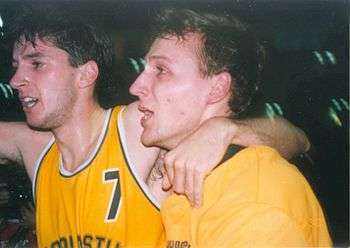
Jugoplastika met FC Barcelona again in the 1990 Euroleague final in Zaragoza, Spain. Barcelona was backed by thousands of fans and managed to get a brief 61-59 lead late in the second half, but Kukoc buried a couple of critical three-pointers that sent Jugoplastika on its way to its second straight title. Kukoc finished the game with 20 points and the Euroleague Final Four MVP award in his magic hands.
In most places, one can find that the European champs in 1991 were called Pop 84, but that was just the name of the sponsor under which the talented players of Jugoplastika were playing that season. Despite being without Dino Radja and Dusko Ivanovic, the team from Split was led by a great Toni Kukoc and a genius-like Zoran Savic to their third consecutive title. Since the times when ASK Riga of USSR won European titles between 1958 and 1960, no other team had won three in a row. And in the Final Four era, no team besides Jugoplastika has been able to win even two consecutively. In 1991, the competition provided some big surprises leading up to Paris. Kingston of England eliminated CSKA Moscow, and what's more, with a double victory, 93-77 at home and 72-74 in Moscow. Bayer Leverkusen of Germany made its debut in the third round, but the other faces were well-known to everyone: FC Barcelona ended first in that phase (11-3), Pop 84 was second (9-5), and the other two Final Four teams would be Scavolini and Maccabi, tied at 8-6. Once again, the first team of the previous round didn't get the title. In a rematch of the previous year's final - another occurrence that has not been repeated since - the team from Split won 70-65, almost identical to the 1990 score (72-67). Thanks to a great performance by Savic, who scored 27 points, Jugoplastika had an historic three-peat.
Seasons in Yugoslavia
Split participated in the Yugoslav First Basketball League from the 1964 season until the breakup of Yugoslavia in summer of 1991 (except from 1981-82 season where the club demoted to Yugoslav 1. B Federal Basketball League).
| Pos. | 64 | 65 | 66 | 67 | 68 | 69 | 70 | 71 | 72 | 73 | 74 | 75 | 76 | 77 | 78 | 79 | 80 | 81 | 82 | 83 | 84 | 85 | 86 | 87 | 88 | 89 | 90 | 91 |
|---|---|---|---|---|---|---|---|---|---|---|---|---|---|---|---|---|---|---|---|---|---|---|---|---|---|---|---|---|
| 1 | 1 | 1 | 1 | 1 | 1 | 1 | ||||||||||||||||||||||
| 2 | 2 | 2 | 2 | 2 | 2 | 2 | ||||||||||||||||||||||
| 3 | 3 | 3 | 3 | 3 | ||||||||||||||||||||||||
| 4 | ||||||||||||||||||||||||||||
| 5 | 5 | |||||||||||||||||||||||||||
| 6 | 6 | 6 | 6 | 6 | 6 | |||||||||||||||||||||||
| 7 | ||||||||||||||||||||||||||||
| 8 | 8 | |||||||||||||||||||||||||||
| 9 | 9 | |||||||||||||||||||||||||||
| 10 | 10 | 10 | ||||||||||||||||||||||||||
| 11 | 11 | |||||||||||||||||||||||||||
| 12 | ||||||||||||||||||||||||||||
| 1B | 1 |
Notable people
Coaches
 Enzo Sovitti
Enzo Sovitti Branko Radović
Branko Radović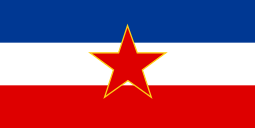 Srđan Kalember
Srđan Kalember Petar Skansi
Petar Skansi Matan Rimac
Matan Rimac  Zoran Grašo
Zoran Grašo  Krešimir Ćosić
Krešimir Ćosić Zoran Slavnić
Zoran Slavnić  Božidar Maljković
Božidar Maljković Željko Pavličević
Željko Pavličević
 Slobodan Subotić
Slobodan Subotić Josip "Pino" Grdović
Josip "Pino" Grdović Predrag Kruščić
Predrag Kruščić
Players
 Branko Radović
Branko Radović Ivan "Trica" Bartulović
Ivan "Trica" Bartulović Ratomir Tvrdić
Ratomir Tvrdić Josip Vranković
Josip Vranković Roko Leni Ukić
Roko Leni Ukić Nikola Vujčić
Nikola Vujčić Dino Rađa
Dino Rađa Damir Šolman
Damir Šolman Duje Krstulović
Duje Krstulović Mirko Grgin
Mirko Grgin Toni Kukoč
Toni Kukoč Velimir Perasović
Velimir Perasović Zoran Čutura
Zoran Čutura Petar Skansi
Petar Skansi  Zdenko Prug
Zdenko Prug  Mlađan Tudor
Mlađan Tudor  Ivica Dukan
Ivica Dukan Željko Jerkov
Željko Jerkov Željko Poljak
Željko Poljak Damjan Rudež
Damjan Rudež Žan Tabak
Žan Tabak Goran Sobin
Goran Sobin Ivica Burić
Ivica Burić Aramis Naglić
Aramis Naglić Luka Babić
Luka Babić Andrija Žižić
Andrija Žižić Nikola Prkačin
Nikola Prkačin Krešimir Lončar
Krešimir Lončar Joško Poljak
Joško Poljak Damir Rančić
Damir Rančić Igor Miličić
Igor Miličić Teo Čizmić
Teo Čizmić Franko Kaštropil
Franko Kaštropil Srđan Subotić
Srđan Subotić Hrvoje Henjak
Hrvoje Henjak Ante Grgurević
Ante Grgurević Damir Tvrdić
Damir Tvrdić Ivan Mimica
Ivan Mimica Ante Toni Žižić
Ante Toni Žižić Dragan Bender
Dragan Bender Jere Macura
Jere Macura Josip Sobin
Josip Sobin Ivan Siriščević
Ivan Siriščević Bruno Šundov
Bruno Šundov Živko Badžim
Živko Badžim Toni Dijan
Toni Dijan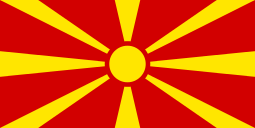 Petar Naumoski
Petar Naumoski Luka Pavićević
Luka Pavićević Duško Ivanović
Duško Ivanović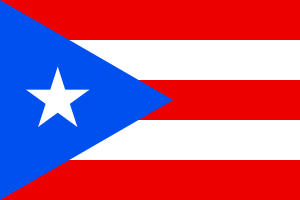 Larry Ayuso
Larry Ayuso  Jurij Zdovc
Jurij Zdovc Peter Vilfan
Peter Vilfan Zoran Sretenović
Zoran Sretenović Zoran Savić
Zoran Savić Ray "Sugar" Richardson
Ray "Sugar" Richardson  Avie Lester
Avie Lester Jamon Gordon
Jamon Gordon Damir Mršić
Damir Mršić Sejo Bukva
Sejo Bukva Dejan Ivanov
Dejan Ivanov
"KK Split: Odyssey in Yellow"(2015 Documentary)
There are nostalgic moments when you look closely in the past and liked it that you look left in times of success as long as possible. Such moments usually occur when the present knows no success, when the bleak and when it is difficult to find prospects. Again, anniversaries are there for those moments. The documentary film "70 years of KK Split: Odyssey in yellow",[1] which was broadcast on December 1 this year on HRT in the appropriate project in which this, a number of reasons stumbled, basketball giant revives glorious past. Split "Jugoplastika" by FIBA declared the best basketball collective in the 20th century is deeply woven into the history of Croatian basketball, and the movie "The Odyssey in yellow" in just over eighty minutes evokes important moments in the history of Split, Croatian and Yugoslav basketball.
It is impossible to talk about any sport in Split, and not to mention Hajduk. "Odyssey in yellow" mentions that in infected football, basketball began. The beginning of basketball in Split bind for women's basketball, men's section began a little later. Elvira Čulić Carbonini at the beginning of the film is about establishing žemske basketball team which was the first game played in 1945 against Zadar team. This game, in addition to the defeat, caused the perception that the "basketball sport for women." Vinko Bajrović spoke on the playground at Spinutu where he began the tradition of men's basketball in Split. People who have passed the courses did not understand how men can practice basketball. The perception started to change the arrival Branka Radonića. Radonić has laid the foundation of modern work that later led to the first great success of the Split basketball.
The first phase of a documentary film about the first great, legendary generation of Split basketball. These players were the key part of the Yugoslav team that won the World Championship in Ljubljana in 1970 and referred to in the movie "We will be world champions," about which I wrote earlier. The name under which the club achieved the greatest success bringing the first signed a sponsorship deal the club and the company. Club after moving to the flu, a signature sponsorship speech and arrival Damir Solman city known shaft Skansi-Šolman-Rato Tvrdić bringing the first championship of Yugoslavia (1970-71.). The story of this generation continues and the first European Cup Final of Europe "Jugoplastika" unfortunate loses 70:69 of the Italian Ignis '72. This generation that is with Kreso Cosic represented the backbone of the Yugoslav national team and winning the World Cup, dropped the chance to become European champions for one last ball. The work of Peter Skansi worth mentioning in the coaching segment and the construction of a new, successful genracije Split yellow. Generation led by Jerkov and Krstulović, the hoarder departing won 2 Korac Cup. In this part, I would say, ends the first phase of the film.
"You know when you will certainly give the basket," said Jerkov, "when you stop and think when you're doing everything by instinct." Most emotional moment of the film and milestone between two geniuses generation forgiveness is a hoarder Rate of active play. Mladen Delic in his distinctive style, comments that forgiveness and thus creates the atmosphere of which is, frankly, a man stands on end.
The second phase of the documentary film about the most famous building, trophy genracije eighties. Skansi, Slavnić, Trninić and Kreso Cosic laid the foundations of inserting "yellow chickens" in the first team, and their work has been upgraded to the professional and meticulous work God Maljkovic. Trninić talk about how "every success there are more fathers. You have to respect those who were before you, who have set certain foundations ". After Maljkovic arrival split team where they played Kukoc, Radja, Ivanovic, Sretenovic, Perasović and other eighties dominated Europe, a team player and Maljkovic is explained through statements that could be considered on the basis of sports psychology and creating a healthy atmosphere and attitude in team sport. Maljkovic expertise and ingenuity of players has led to the domination of the European Cup which became legendary. The last European title, but called POP 84, led by Zeljko Pavlicevic was a special surprise. But equally, the swan song of a great generation. "Odyssey in yellow" speaks about the period after the collapse of Yugoslavia. The existence of the club in the nineties, while Cibona's dominance is also touched upon in the film. RaDJin back and winning PH, with Zdovca and Sesar, made a "KK Split 'last championship, and just under Zdovčevim leadership team wins the Croatian Cup as their last trophy.
"Today's parents, managers when vampires ..." - Dino Radja
"Odyssey in yellow" is a film that is as archival compilation followed statements by participants agreed screenwriter Mladen Capin, a director Tomislav Mršić all gave a touch nostalgic patina that usually last successes contain. "Odyssey in yellow" is a journey into some better days when the club with flu traveled across Europe and caused respect in European and global scale. Today, when the yellow submarine ship more than anything else we can not sing the song popular Beatles to feel better. It is a pity. If it is true that the development of society can be measured attitude to the legends. "Jugoplastika", "POP 84" or "KK Split" certainly is one of those legends. Although today is far from glorious days, do not play no regional division and is located before shutting down, I hope you will find in a good mood that would help the aged seventy avoid the fate of the company under whose name the greatest success.
Minira whether the club Split will lose one of the most famous symbols. Then the "Odyssey in yellow" in the legend to cross the myth. For fans of basketball that would be indescribable damage. Among other things, because of the past - not live.
References
External links
- Official Website of KK Split (Croatian)
- KK Split at Eurobasket.com
